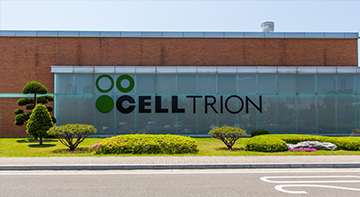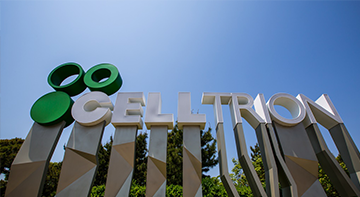Media Center
Press Release Latest Post Banner Type
Press Release Latest Post Banner Type
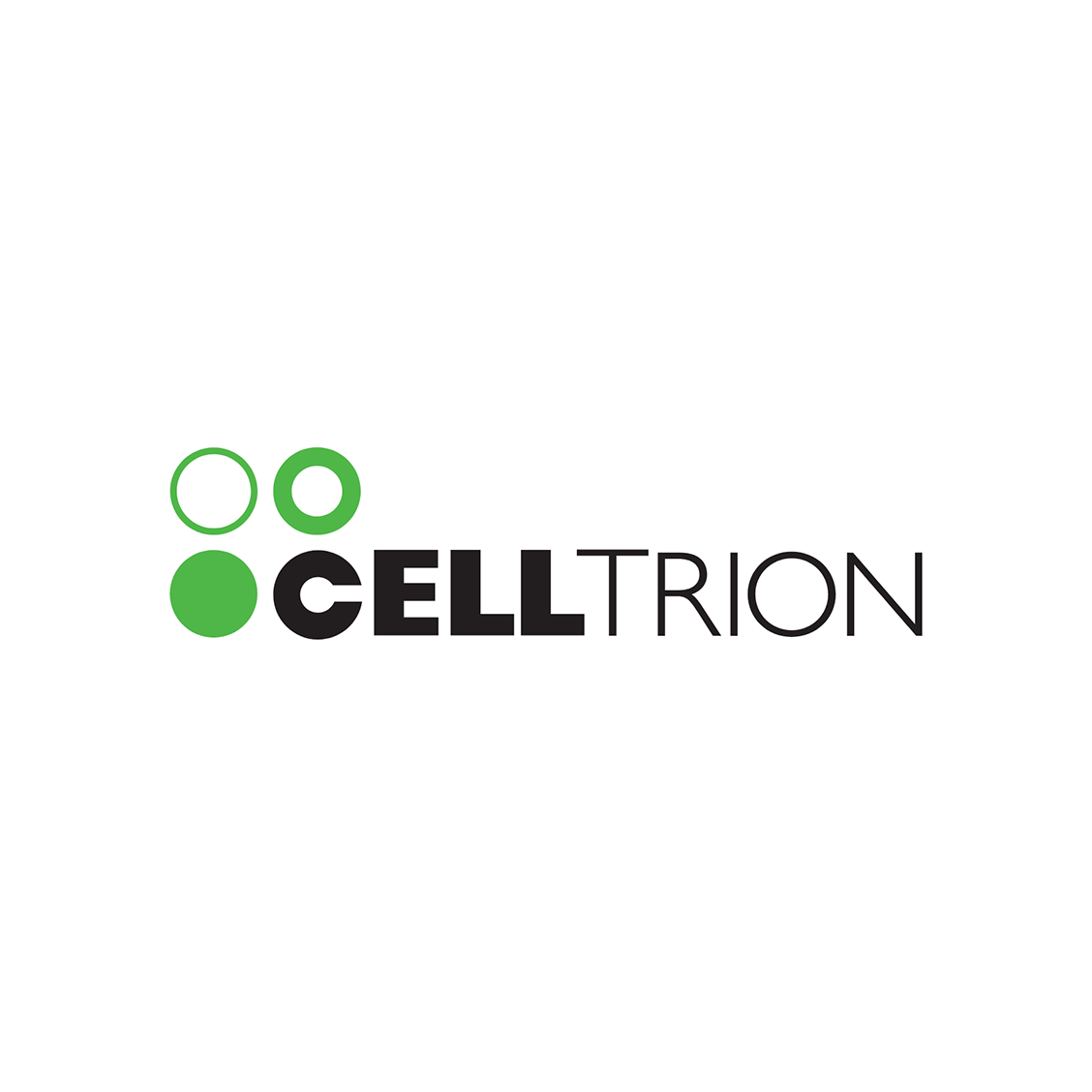
Celltrion Advances Dual-Track Development of a ‘Quadruple-Action Injectable’ and a ‘Multi-Target Oral Therapy’ for Obesity, Pursuing a Potential Game-Changer Status through Differentiated Approaches
2026.02.24- Celltrion seeks to create synergy in the obesity drug market through the development of a differentiated quadruple-action injectable and an oral drug.- The multi-target injectable, including GLP-1, is designed to improve the adverse event profile and maximize efficacy compared to existing therapies, with an IND submission planned for 2027.- The GLP-1–based oral drug is expected to significantly expand treatment access by improving patient compliance, with an IND submission planned for 2028.- Celltrion aims to establish a foundation for comprehensive market penetration through the development of two types of obesity therapies, tailored to patient characteristics and treatment stages. INCHEON, South Korea - Celltrion announced today that it is advancing the development of innovative obesity therapies differentiated from existing treatments, aiming to establish a strong position in the rapidly growing global obesity drug market. The company is implementing a dual-track strategy to simultaneously develop a quadruple-action injectable (development code: CT-G32), designed to maximize efficacy by expanding target mechanisms beyond existing therapies, and a multi-target oral therapy that significantly enhances dosing convenience compared to injectable treatments. The next-generation obesity therapeutic candidate CT-G32 is being developed as a first-in-class drug that simultaneously acts on four targets, surpassing the currently dominant GLP-1 (glucagon-like peptide-1)–based dual- and triple-agonists in the market. The candidate is designed to address limitations of existing therapies, including variable patient response and the loss of lean muscle mass, while maximizing appetite suppression and weight loss through its expanded multi-target mechanism. The company also plans to expand development into a metabolic disease therapy encompassing lipolysis promotion and regulation of energy metabolism. CT-G32 is currently undergoing preclinical studies for candidate compounds, with plans to submit an Investigational New Drug (IND) application in the first half of next year to initiate clinical trials. In parallel, the multi-target oral therapy currently under development is expected to significantly expand patient access by offering enhanced dosing convenience over injectables. Ease of storage and distribution, enabling sustained treatment, represents an additional advantage. While existing oral therapies either have limited accessibility due to their classification as psychotropic agents or offer relatively modest weight-loss effects, Celltrion is designing its candidate based on GLP-1 receptor agonists – a mechanism that has recently gained significant attention – as a best-in-class therapy. In particular, while recently emerging oral obesity therapies from global pharmaceutical companies act on a single GLP-1 receptor target, Celltrion’s oral therapy is being developed to act on multiple targets including the GLP-1 receptor, which is expected to deliver enhanced efficacy and reduced adverse events. Celltrion is currently conducting research to improve stability and bioavailability from both formulation and molecular design perspectives and plans to submit an IND application in the second half of 2028. Upon completion of development, Celltrion expects to establish itself as a game changer in the high-growth obesity treatment market based on improved efficacy and convenience compared to existing products. The injectable is being developed for patients requiring substantial initial weight loss or those with insufficient response to existing therapies, while the oral therapy is intended for patients who find injectables burdensome or those requiring long-term maintenance therapy following weight loss. Through this approach, the company aims to maximize synergy between the two therapies and establish a foundation for comprehensive market penetration across treatment stages. According to the World Health Organization (WHO), the global prevalence of overweight among adults has increased sharply from approximately 25% in the 1990s to over 40% in recent years. As a result, obesity-related complications and associated healthcare costs are rising. Market research firm GlobalData projects that the global obesity therapeutics market will reach approximately USD 173.5 billion by 2031. “Building on our established leadership in therapeutic areas such as autoimmune diseases and oncology, and following our recent expansion into ophthalmology and bone disorders, we plan to enter the obesity therapeutics market, which has immense growth potential, with differentiated competitiveness,” a Celltrion official said. “We will continue to actively explore new therapeutic areas, maximize corporate value, and strive to evolve into a global big pharma company.”
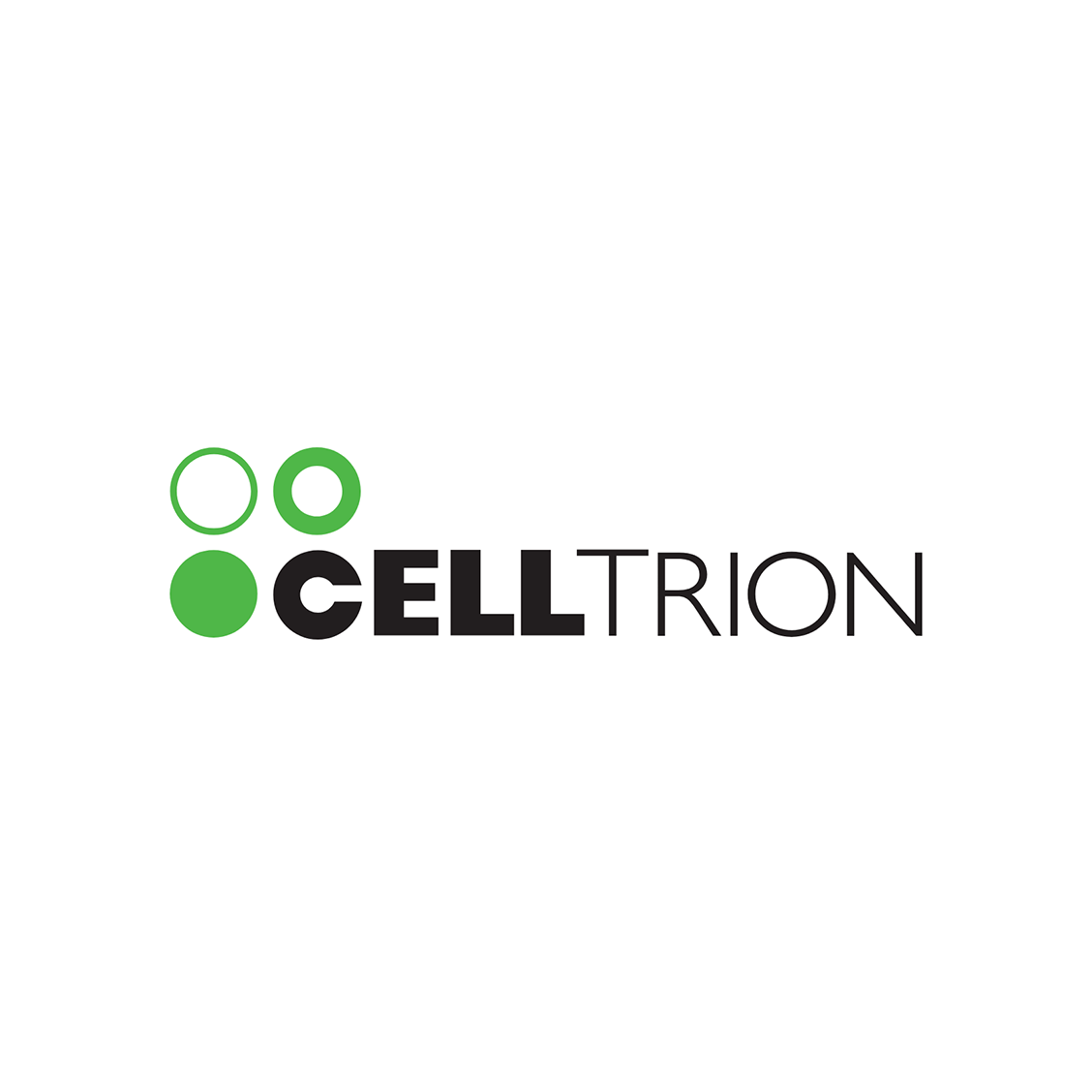
New ECCO data show subcutaneous (SC) infliximab (Remsima™ SC) effectively recaptures and maintains disease control after drug holiday
2026.02.19A new post-hoc analysis from the LIBERTY studies, presented at ECCO 2026, demonstrated that initiating subcutaneous (SC) infliximab (Remsima™ SC) after a treatment interruption following intravenous (IV) infliximab induction helps patients with Crohn’s disease (CD) and ulcerative colitis (UC) recapture and maintain disease control1The results demonstrated that SC infliximab provides an effective and safe option to regain clinical control after a planned or unplanned treatment interruptionMore than a total of 30 accepted abstracts including one oral and one digital oral presentation and eight posters, reinforce Celltrion’s commitment to inflammatory bowel disease (IBD) research aimed at enhancing patient outcomes INCHEON, South Korea - Celltrion, Inc. today announced new data from a post-hoc analysis of the pivotal LIBERTY studies (LIBERTY-CD and LIBERTY-UC), showing that subcutaneous (SC) infliximab restored and maintained response in most Crohn’s disease (CD) and ulcerative colitis (UC) patients with sustained efficacy, safety, and persistence through to Week 102.1 The data will be presented as a poster presentation at the 21st Congress of the European Crohn’s and Colitis Organisation (ECCO), to be held from February 18-21 in Stockholm, Sweden. “As immunogenicity is the most significant concern when restarting treatment with infliximab after an interruption, these results suggest that treatment persistence was maintained even in patients with immunogenicity,” said Dr. Marla Dubinsky, Professor of Pediatrics and Director of the IBD Center at the Icahn School of Medicine at Mount Sinai. “It's reassuring to see that not only can we effectively recapture disease control with a convenient subcutaneous option, but that this response was seen early and was shown to be maintained through Week 102 in a post-hoc analysis from the pivotal LIBERTY studies. This is a significant finding for patients, as it offers a potentially reliable strategy for providers and transformative opportunity for patients to manage their IBD journey even when treatment is interrupted.” “In clinical practice, patients may experience treatment interruption for clinical and non-clinical reasons, and initiation of treatment demands careful consideration of the risks,” said Professor Stefan Schreiber, University Hospital Schleswig-Holstein, Department of Medicine I, Kiel, Germany. “This data provides evidence that subcutaneous infliximab can effectively and safely recapture disease control, offering a viable treatment option for both clinicians and patients.” The analysis evaluated the efficacy and safety of starting SC infliximab 240mg in patients, randomised to the placebo maintenance arm in the Phase 3 LIBERTY studies, who had previously completed intravenous (IV) infliximab induction and subsequently experienced a drug holiday of 16 weeks or more before starting SC infliximab due to disease progression. Among 51 CD and 77 UC patients who initiated treatment with SC infliximab, clinical response was observed early by 8±2 weeks and was maintained through the study. At the end of the treatment, 61.1% in CD and 65.2% in UC patients achieved faecal calprotectin remission, and 64.0% in CD and 68.8% in UC patients achieved endoscopic response/ improvement. Persistence in treatment end was 72.3% of CD patients and 61.9% of UC patients. Serum infliximab levels increased after initiating SC infliximab and remained stable through Week 102, with no new safety concerns observed. The results demonstrated that initiation of treatment with SC infliximab 240 mg was effective to recapture and maintain disease control for Crohn’s disease (CD) and ulcerative colitis (UC) patients, suggesting SC infliximab provides an effective and safe option to regain clinical control after a planned or unplanned treatment interruption. Additionally, Celltrion will host a satellite symposium titled, “Enhancing Patient Management with Subcutaneous Infliximab: Practical Insights & Discussion.” on Friday, February 20 from 12:45 to 13:25, in Room A12 at Stockholmsmässan. Chaired by Professor Jean-Frédéric Colombel, the symposium will feature presentations from Professor Anthony Buisson and Professor Axel Dignass. “The comprehensive data from the studies reinforces the growing body of evidence supporting subcutaneous infliximab as a critical treatment option for the gastroenterology community,” said Nam Lee, Vice President of Global Medical Affairs at Celltrion. “The data presented at ECCO 2026 further demonstrate our leadership and long-standing commitment to raising standards of care in gastroenterology and to improving the lives of people with Inflammatory Bowel Disease.” Notes to Editors: About the subcutaneous (SC) formulation of CT-P13CT-P13 SC is the world’s first subcutaneous formulation of infliximab. A 120mg fixed dose of CT-P13 SC has been approved for use in 60 countries including the US, UK, EU, Canada, Brazil, Australia and Taiwan, in adults regardless of body weight. The SC formulation of infliximab has the potential to enhance treatment options by providing high consistency in drug exposure and a convenient method of administration.2,3 In July 2024, CT-P13 SC received final approval from the European Commission for an additional dosing regimen and dose escalation, which allows 3-intraveneous (IV) induction dosing regimen and dose escalation of subcutaneous maintenance dose from CT-P13 SC 120 mg Q2W to 240 mg Q2W for patients with loss of response.4 Long term data from two-year extension of the LIBERTY studies (LIBERTY-CD and LIBERTY-UC) have demonstrated sustained efficacy and safety of CT-P13 SC, with clinical remission, response, and corticosteroid-free remission generally maintained through Week 102.5 About CelltrionCelltrion is a leading biopharmaceutical company that specializes in researching, developing, manufacturing, marketing and sales of innovative therapeutics that improve people's lives worldwide. Celltrion is a pioneer in the biosimilar space, having launched the world's first monoclonal antibody biosimilar. Our global pharmaceutical portfolio addresses a range of therapeutic areas including immunology, oncology, haematology, ophthalmology and endocrinology. Beyond biosimilar products, we are committed to advancing our pipeline with novel drugs to push the boundaries of scientific innovation and deliver quality medicines. For more information, please visit our website www.celltrion.com/en-us and stay updated with our latest news and events on our social media - LinkedIn, Instagram, X, and Facebook. FORWARD-LOOKING STATEMENTCertain information set forth in this press release contains statements related to our future business and financial performance and future events or developments involving Celltrion Inc. and its subsidiaries that may constitute forward-looking statements, under pertinent securities laws. This press release contains forward looking statements. These statements may be also identified by words such as "prepares", "hopes to", "upcoming", "plans to", "aims to", "to be launched", "is preparing", "once gained", "could", "with the aim of", "may", "once identified", "will", "working towards", "is due", "become available", "has potential to", “anticipates”, the negative of these words or such other variations thereon or comparable terminology.In addition, our representatives may make oral forward-looking statements. Such statements are based on the current expectations and certain assumptions of Celltrion Inc. and its subsidiaries' management, of which many are beyond its control.Forward-looking statements are provided to allow potential investors the opportunity to understand management’s beliefs and opinions in respect of the future so that they may use such beliefs and opinions as one factor in evaluating an investment. These statements are not guarantees of future performance and undue reliance should not be placed on them.Such forward-looking statements necessarily involve known and unknown risks and uncertainties, which may cause actual performance and financial results in future periods to differ materially from any projections of future performance or results expressed or implied by such forward-looking statements.Celltrion Inc. and its subsidiaries undertake no obligation to update forward-looking statements if circumstances or management’s estimates or opinions should change except as required by applicable securities laws. References____________________1 Colombel JF et al., Recapturing disease control with subcutaneous infliximab after a drug holiday following intravenous infliximab induction: A post hoc analysis of LIBERTY-CD and -UC studies. Poster Presentation (P0832) at ECCO 2026.2 Schreiber S et al., Gastroenterology. 2021;160(7):2340-2353.3 Westhovens R et al., Rheumatology. 2021;60(5):2277-2287.4 European Medicines Agency. Remsima - Summary of Product Characteristics (SmPC). [Accessed January 2026]5 Colombel JF et al., Subcutaneous Infliximab (CT-P13 SC) as Maintenance Therapy for Crohn’s Disease and Ulcerative Colitis: 2-Year Results from Open Label Extensions of Two Randomized Controlled Trials (LIBERTY). Journal of Crohn’s and Colitis. 2025;19(6):jjaf060.
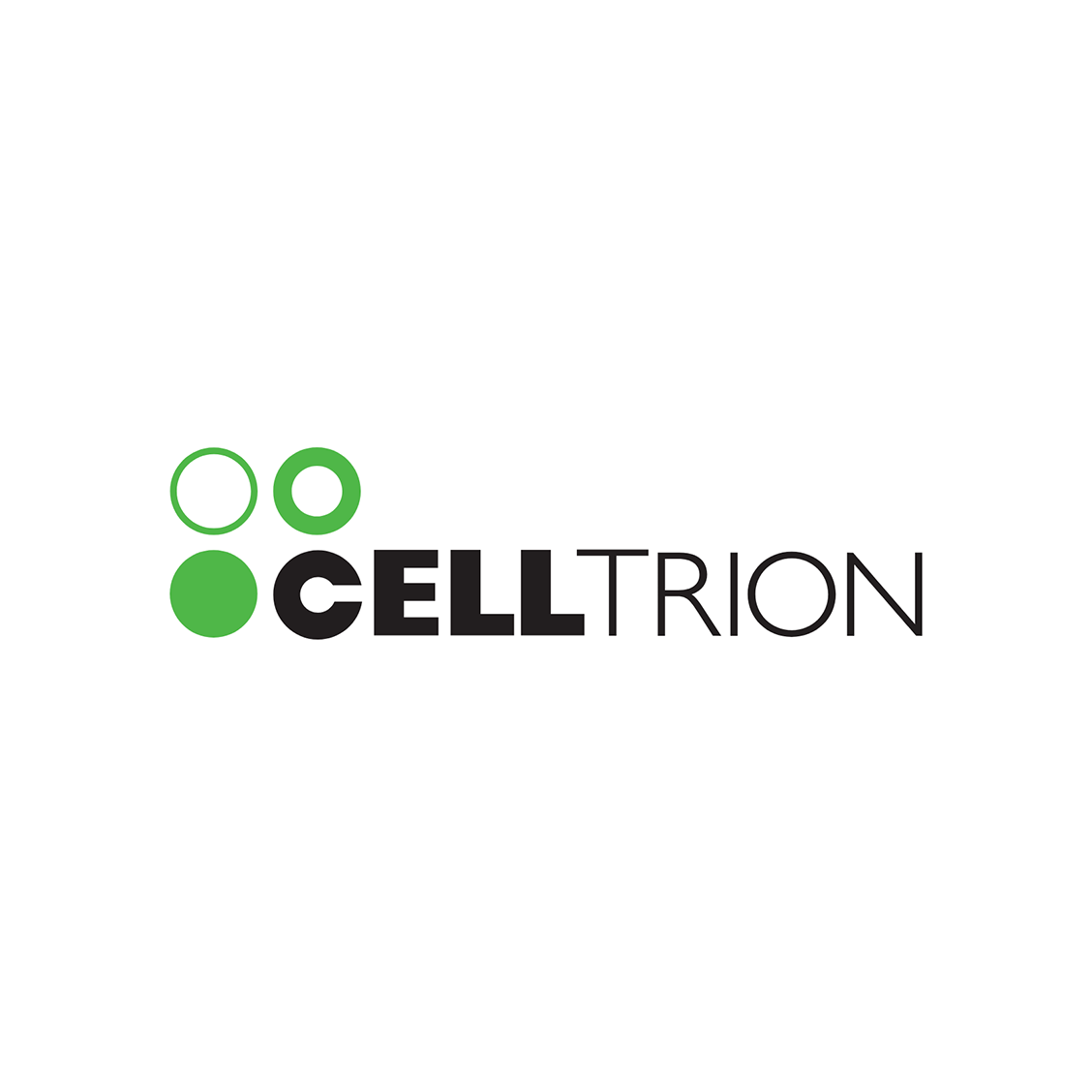
Celltrion to Submit Approx KRW 1.46Tn Treasury Share Cancellation Proposal to Shareholders’ Meeting; To Amend Articles Ahead of Commercial Act Revision to Enhance Transparency and Shareholder Value
2026.02.12- Celltrion will proactively amend its Articles of Incorporation to reflect the intent of the pending Commercial Act revision and submit a proposal for the cancellation and utilization of treasury shares at the upcoming AGM.- The Company plans to cancel 65% of its treasury shares, excluding those reserved for employee compensation, while the remaining 35% will be utilized to secure future growth drivers.- The planned cancellation of 6.11 million shares exceeds the volume of treasury shares repurchased in 2024–2025, demonstrating the Company’s commitment to responsible shareholder returns.- Celltrion will also adopt cumulative voting, an independent director system, an expanded number of separately elected outside directors, and electronic shareholders’ meetings in advance to strengthen shareholder rights protection. INCHEON, South Korea - Celltrion announced today that it will submit agenda items to its upcoming Annual General Meeting of Shareholders (AGM) to manage the cancellation, retention, and utilization of treasury shares under a structured framework, as part of its effort to strengthen corporate competitiveness and enhance shareholder value. In its notice of convocation, the company disclosed that it will hold its 35th Annual General Meeting of Shareholders on March 24 and submit agenda items including approval of the treasury share cancellation and disposal plan, partial amendments to the Articles of Incorporation, appointment of directors, and approval of the financial statements including a cash dividend of KRW 750 per share. Celltrion plans to revise its Articles of Incorporation and obtain shareholder approval to clarify the legal basis for treasury share cancellation and disposal. The Company also aims to eliminate potential market uncertainty and maintain a transparent disclosure framework. In addition, the amendments will proactively incorporate the intent of the government-proposed Commercial Act revision by introducing an independent director system, mandatory cumulative voting, an increased number of separately elected outside directors, and electronic shareholders’ meetings, thereby strengthening shareholder rights protection. Celltrion intends to retain approximately 3 million shares out of its current treasury holdings of approximately 12.34 million shares for employee compensation purposes, including stock options already granted. This measure reflects shareholders’ requests to utilize treasury shares instead of issuing new shares for stock option exercises. Excluding the portion retained for stock option purposes, approximately 6.11 million shares, representing 65% of the Company’s treasury share holdings, will be cancelled, while the remaining approximately 3.23 million shares (35%) will be utilized to secure future growth drivers. After announcing that it would cancel all treasury shares acquired in 2025, Celltrion has already cancelled approximately 1.96 million shares. If the additional cancellation of 6.11 million shares is finalized, the total will exceed the entire amount repurchased in 2024 (2.39 million shares) and the remaining 2025 repurchases (2.98 million shares), and will also include shares acquired prior to 2023. The additional 6.11 million shares scheduled for cancellation correspond to approximately KRW 1.4633 trillion based on the closing price as of February 11. Funds secured through monetization will be utilized to strengthen capabilities necessary for Celltrion’s future growth, including development and acquisition of new technologies and investment in manufacturing facilities. Given the nature of the biopharmaceutical industry, where new drug development significantly impacts corporate value, the Company plans to deploy these resources as strategic investments to enhance mid- to long-term competitiveness. “This treasury share proposal reflects our commitment to embracing the intent of the Commercial Act revision currently under discussion in the National Assembly, establishing a transparent treasury share management framework, and prioritizing shareholder value,” a Celltrion official said. “We will remain committed to shareholders while securing future growth drivers and advancing toward becoming a global biopharmaceutical leader.”
Press Releases
PR Video
Magazine

Biopharmaceuticals, derived from biological sources such as proteins and antibodies, are more susceptible to external factors than chemically synthesized drugs or general commercial products. Accordingly, biopharmaceuticals require verifiable systems that ensure efficacy and quality not only during production but also throughout the entire logistics process, including storage and transport.
Brochure
Learn more about Celltrion through our brochure.

